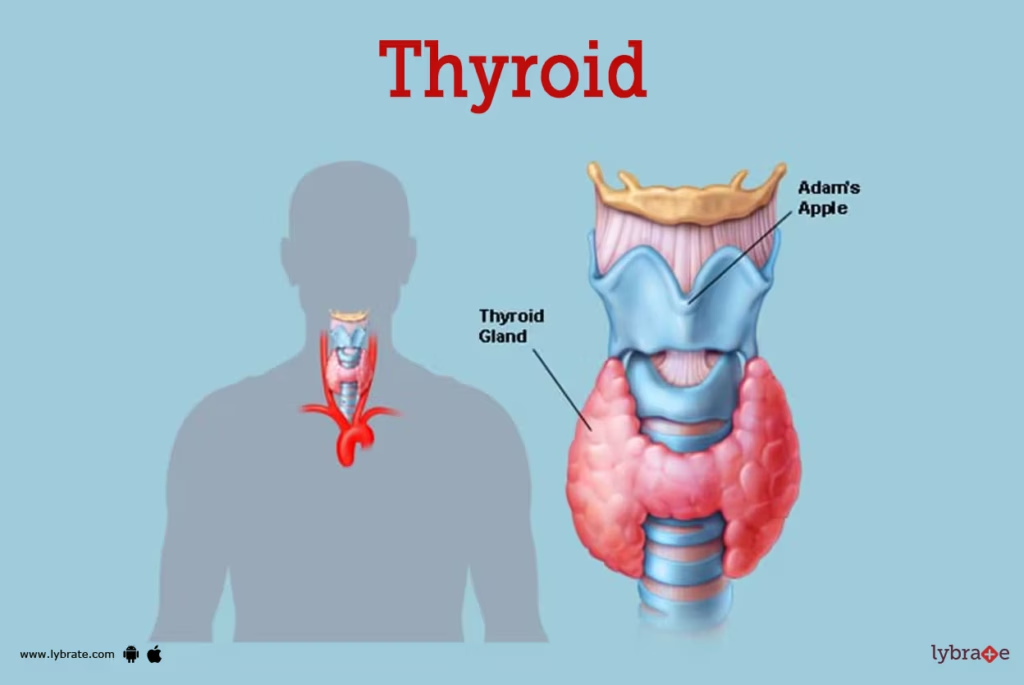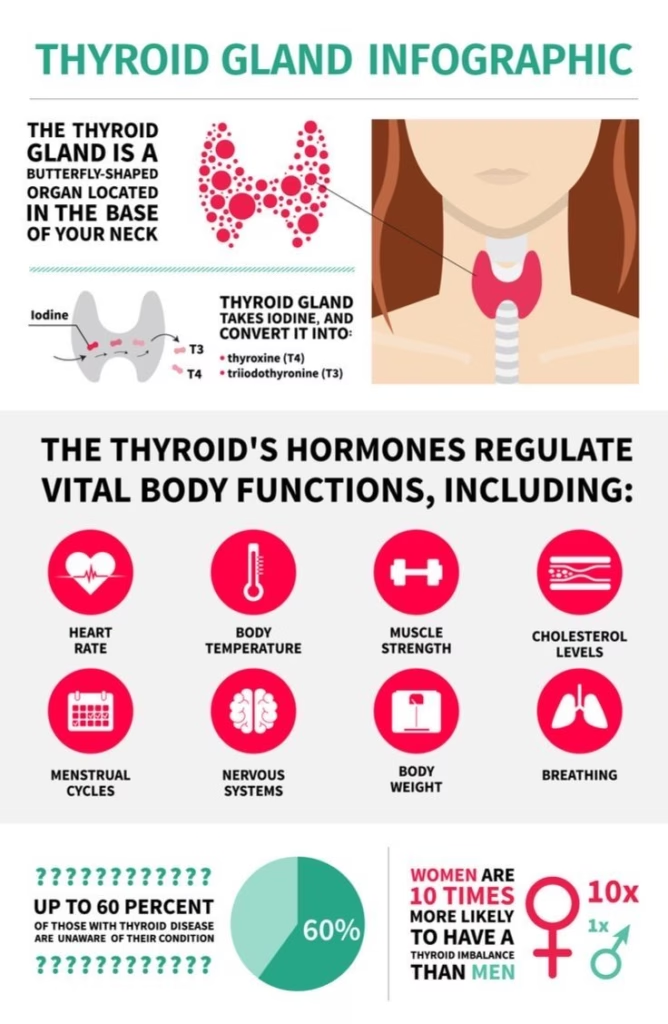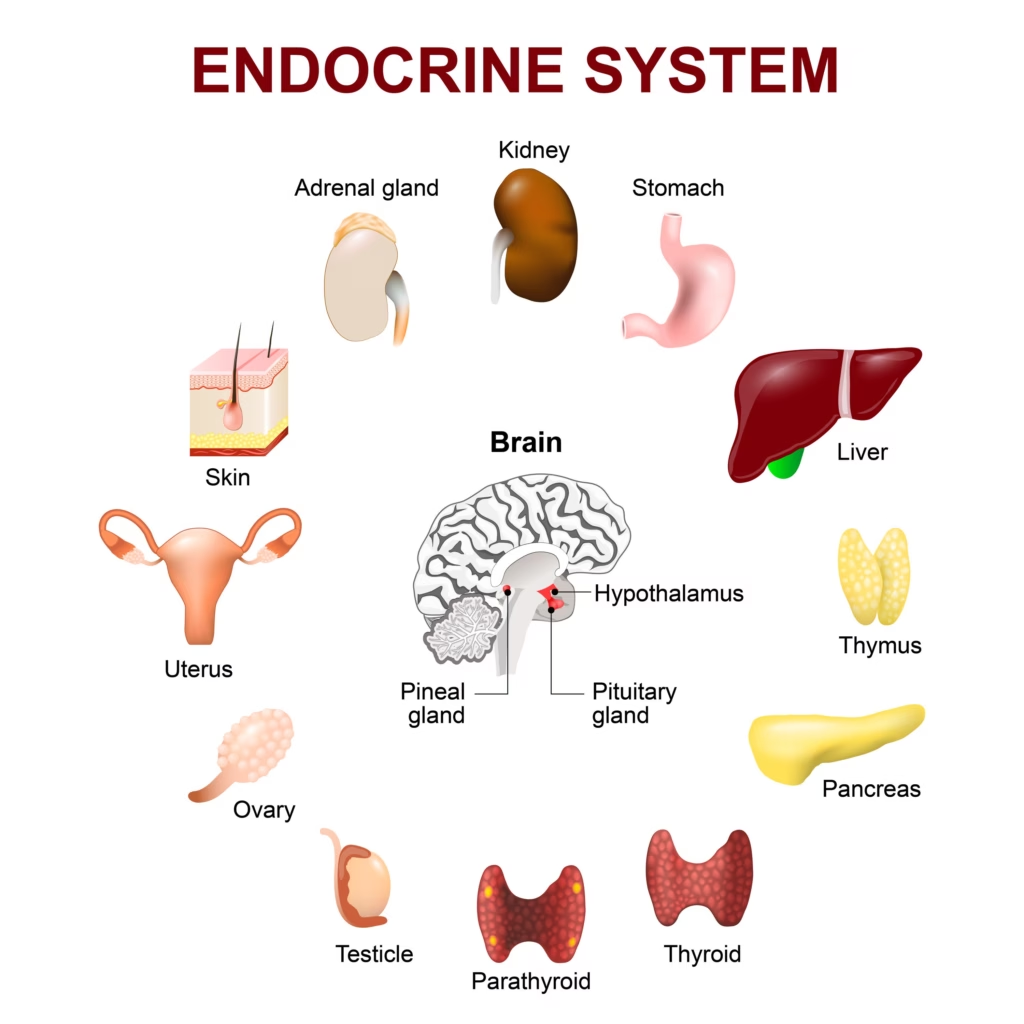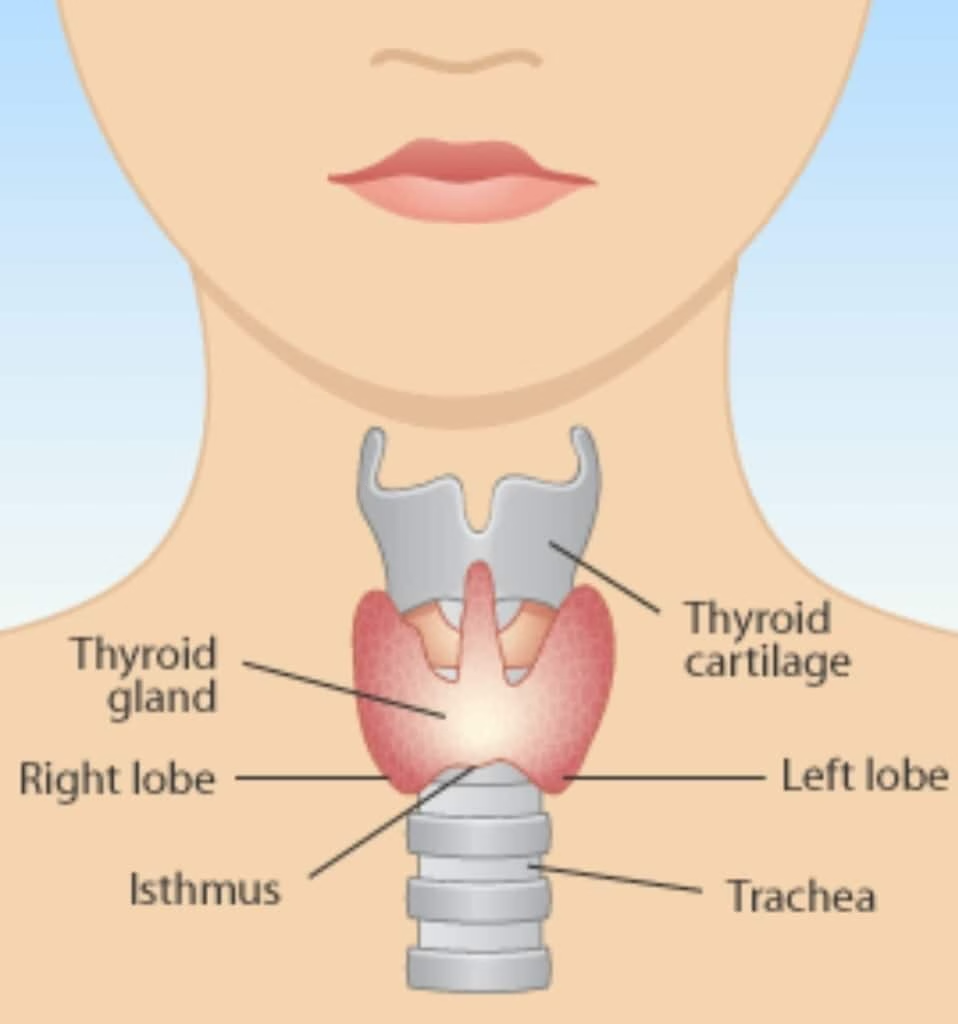What is a thyroid, and how does it support our well-being? Understanding its role can help us appreciate that this small gland is essential to maintaining health.
What is the thyroid?

The thyroid is a crucial, butterfly-shaped gland located at the front of your neck, just beneath the skin. As an essential part of your endocrine system, it plays a key role in regulating many vital functions in your body by producing and releasing hormones. The primary responsibility of the thyroid is to control your metabolism, which is how your body converts the food you eat into energy. Every cell in your body relies on this energy to function correctly.
When the thyroid does not work correctly, it can significantly impact overall health and well-being.
What is the endocrine system?
The endocrine system is a crucial network of glands responsible for producing and releasing hormones. Glands are organs that generate essential substances—such as hormones, digestive juices, sweat, and tears. Endocrine glands discharge hormones directly into the bloodstream.
Hormones act as mighty chemical messengers that regulate various functions throughout the body. They circulate through the blood, reaching organs, skin, muscles, and other tissues and providing clear signals about necessary actions and timing.
The following organs and glands make up your endocrine system:
- Hypothalamus.
- Pituitary gland.
- Thyroid.
- Parathyroid glands.
- Adrenal glands.
- Pineal gland.
- Pancreas.
- Ovaries.
- Testes.

What does my thyroid do?
The thyroid gland plays a vital role in our body’s endocrine system by producing and secreting essential hormones that regulate metabolism and calcium levels. Here’s an overview of the key hormones created by the thyroid:
Thyroxine (T4): This hormone is the primary one produced and released by the thyroid. While T4 is prevalent in the bloodstream, its direct impact on metabolism is limited. However, it can be converted into triiodothyronine (T3) through a process known as deiodination, enhancing its effectiveness.
Triiodothyronine (T3): Although produced in smaller quantities than T4, T3 has a much more significant influence on metabolism, making it a crucial hormone for energy regulation.
Reverse triiodothyronine (RT3): The thyroid produces small amounts of RT3, which serves as a counterbalance to T3, helping to regulate its effects in the body.
Calcitonin: This hormone is essential for maintaining healthy calcium levels in the blood, contributing to overall bone health and metabolic function.
To synthesize these hormones, the thyroid gland requires iodine, a vital element that we obtain from certain foods—most notably iodized salt—and water. By successfully trapping iodine, the thyroid can create essential hormones for our health. Maintaining the right balance of iodine in the body is essential, as both deficiency and excess can affect hormone production and overall well-being. The necessary steps to ensure adequate iodine intake can support proper thyroid function and promote metabolic health.
Your thyroid hormones affect the following bodily functions:
- How your body uses energy (metabolism).
- Heart rate.
- Breathing.
- Digestion.
- Body temperature.
- Brain development.
- Mental activity.
- Skin and bone maintenance.
- Fertility.
What other organs and glands interact with the thyroid?

The endocrine system is a highly sophisticated network of glands and hormones that effectively regulates various bodily functions. Each gland communicates with others, and many hormones depend on signals from different glands to initiate their activities. Moreover, some hormones play a crucial role in inhibiting the actions of others.
The control of thyroid hormone levels in your body is a precise process. It starts with the hypothalamus, located at the base of the brain, which releases thyroid-releasing hormone (TRH). TRH is essential as it stimulates the pituitary gland to produce thyroid-stimulating hormone (TSH). In response, TSH activates the follicular cells of the thyroid to synthesize and release two vital hormones: thyroxine (T4) and triiodothyronine (T3). This process only occurs when adequate levels of iodine are present in the body, highlighting the importance of nutrition in hormone regulation.
Your thyroid gland and its hormones influence nearly every organ system in your body, including:
- Cardiovascular system: The thyroid plays a vital role in regulating the amount of blood your heart pumps through your circulatory system (cardiac output), as well as your heart rate and the strength of each heart contraction (contractility).
- Nervous system: When the thyroid is not functioning properly, it can lead to symptoms affecting the nervous system, such as numbness, tingling, pain, or a burning sensation in various parts of the body. Hypothyroidism may result in depression, while hyperthyroidism can cause anxiety.
- Digestive system: The thyroid is involved in the movement of food through your digestive tract (gastrointestinal motility).
- Reproductive system: An improperly functioning thyroid can lead to irregular menstrual periods and fertility issues.
Can a person live without a thyroid?
Yes, it is possible to live without your thyroid. However, you will need to take hormone replacement medication for the rest of your life to maintain your health and prevent certain side effects and symptoms. Thyroid removal surgery, known as a thyroidectomy, is a common procedure used to treat various thyroid conditions.
Anatomy

Where is the it located?
The thyroid gland is situated at the front of your neck, straddling your windpipe (trachea). It has a butterfly shape, being narrower in the center with two wider wings that extend around the sides of your throat. In a healthy state, the thyroid gland is not typically visible from the outside, meaning there are no noticeable lumps on your neck, and you cannot feel it when you press your finger against the front of your neck.
What are the parts of the thyroid?
The thyroid has two main parts: the two lobes that make up the sides and the thyroid isthmus, which connects them in the middle.
It comprises thyroid follicle cells, known as thyrocytes, that produce and store thyroid hormones, primarily T3 and T4. Additionally, it contains C-cells that secrete the hormone calcitonin.
How big is the thyroid?
The thyroid gland, about 2 inches long, is generally not visible when looking at your neck, indicating it is functioning healthily. However, certain conditions can cause the thyroid to enlarge, a condition known as a goiter. If you find yourself experiencing the following symptoms, it might be worth discussing with a healthcare professional:
– Noticeable swelling in the front of your neck, just below the Adam’s apple.
– A feeling of tightness or discomfort in the throat area.
– Changes in your voice, such as hoarseness or scratchy quality.
Early recognition and consultation can lead to effective management and treatment.
